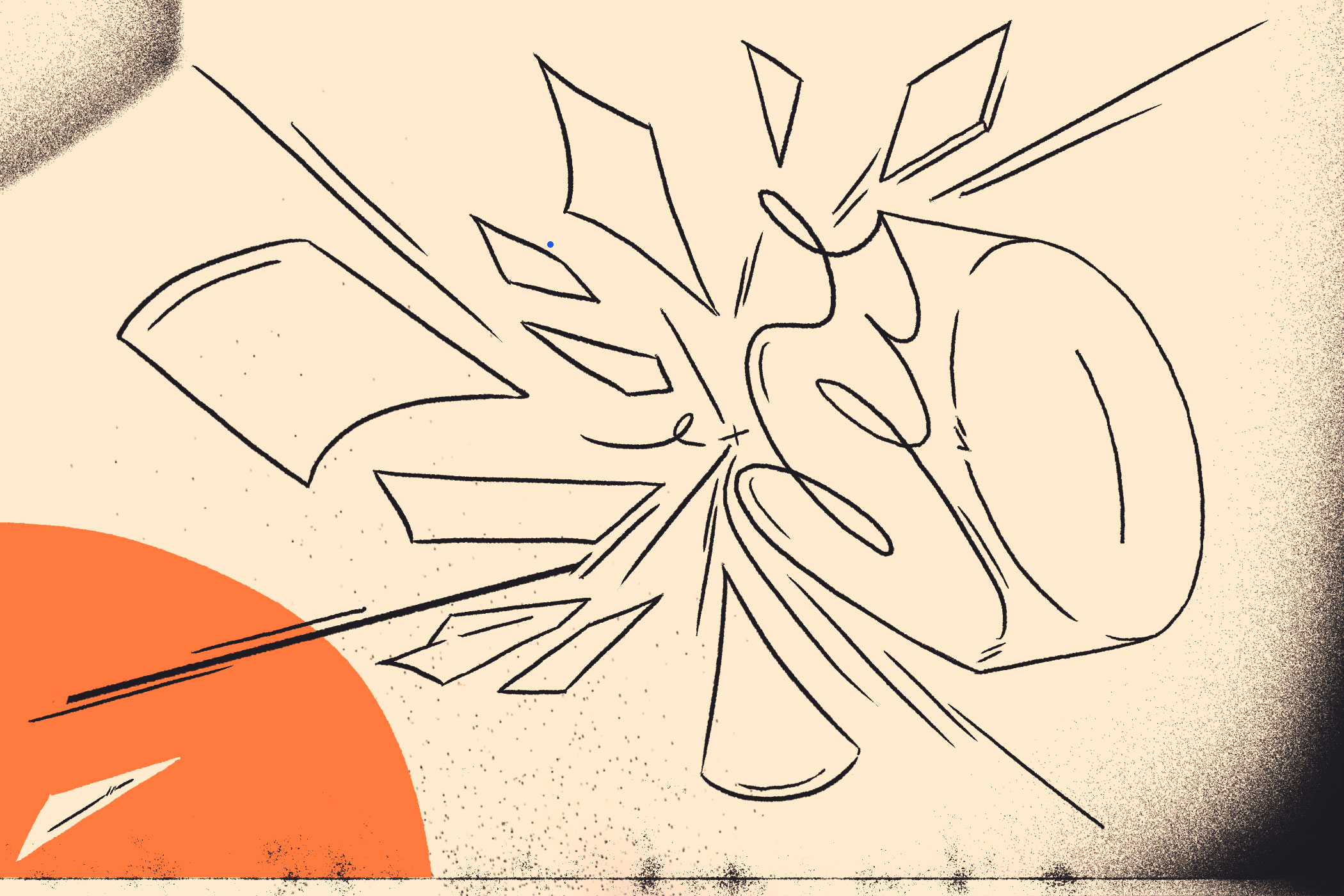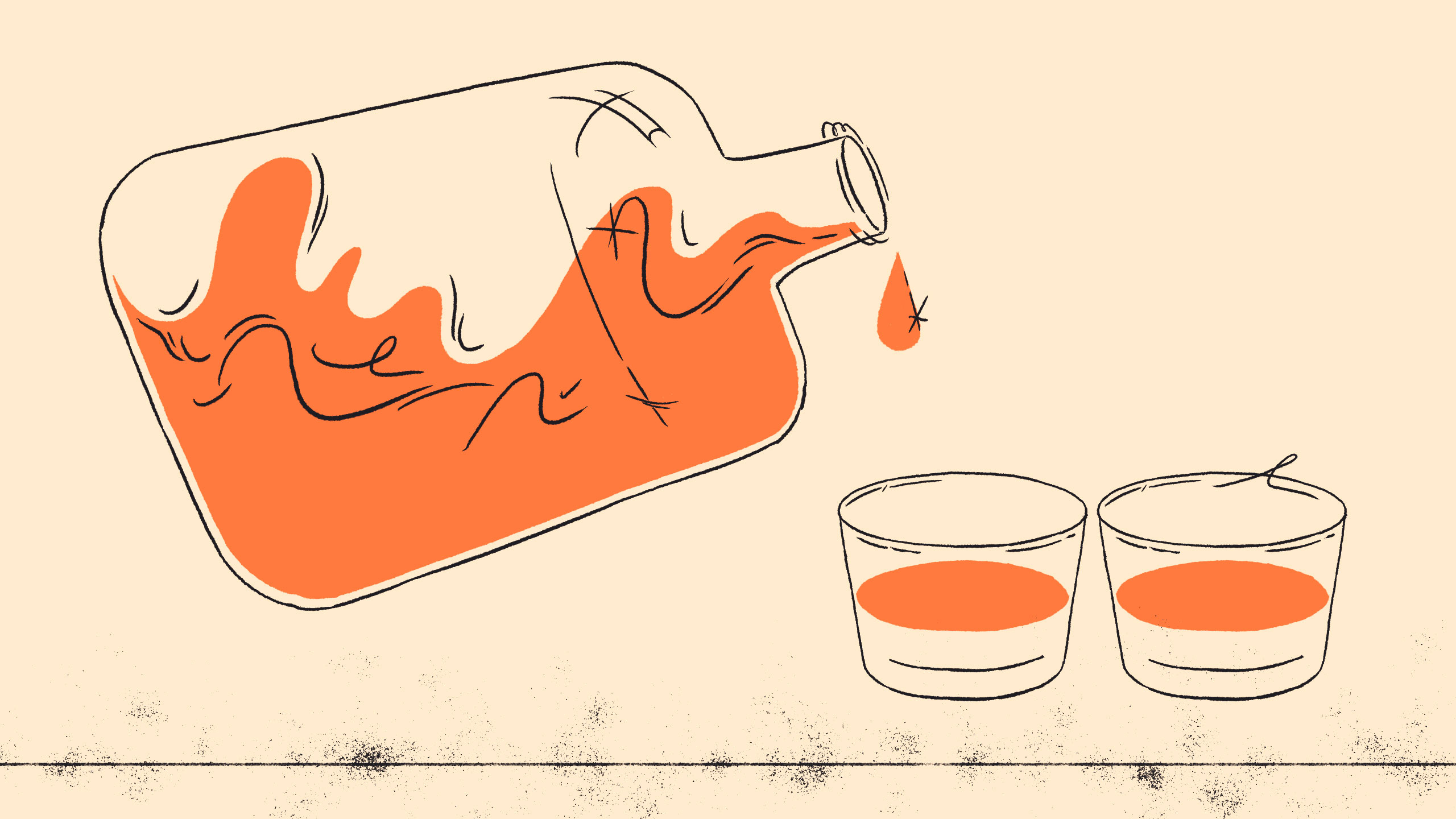To celebrate Short Story Month, we’re publishing a new short story every week in May here and at FSGOriginals.com. Some of the stories, like this one, are part of an ongoing series of stories that are part of the larger universe created in the author’s other work (see also, for example, Jeff VanderMeer’s Strange Bird). This week, Bruce Holbert introduces us to the proprietor of Crazy Eddie’s, the tavern that’s also at the center of much of the action in Bruce’s new novel, Whiskey — which, as the title might telegraph, includes a fair bit of time spent in bars. In fact, this excerpt from the very first chapter of the novel also takes place in Crazy Eddie’s. But now it’s time for the bartender’s story . . .
Crazy Eddie’s Tavern’s proprietor Edward Hagan was never certain how his nickname had come about. He’d been arrested once as an accomplice when Arlo Simons attempted to unload a World War II machine gun in the tavern’s basement. But the overzealous feds neglected to determine whether the weapon actually fired, and when it failed to, the government dropped all charges. Rather than diminish his reputation in the coulee, the event enhanced it, as few had any love for government, federal or otherwise.
Truth be told, Eddie had become the community’s barometer for reason. His humor was gentle and self-deprecating and he conversed in level, congenial tones with customers. The cliché that put troubled patrons unloading on inscrutable anonymous bartenders, however, didn’t apply. There was no anonymity in the coulee.
Rather than a non-entity, Eddie was the most permanent, shared fixture in town. Eddie collected his customers’ tales, separating, threshing, sifting them until he was relieved of emotional investment and listened without sympathy or pain or the other risks of living.
This made his behavior one late March afternoon an anomaly. Tim Mann, a math teacher at the high school as well as the football coach, entered the tavern with a young and shapely blonde, a regular named Ramona.
Annette the Pet Wells usually managed the floor, but Eddie beckoned her off and took their order himself.
“Hello, Coach,” Eddie said.
Mann nodded.
“Ramona,” Eddie added.
“How’s my favorite bartender?” she inquired.
“I don’t know. He’s at the Hi Dam, isn’t he?”
That stumped her a moment, then she laughed. “You are a character.”
Eddie dropped a frozen burger patty on the grill.
“I’ll just stand here then and watch you work,” Annette said. She forked some potato salad into a coffee cup and took a bite. Eddie was weathered, forty-something, stout, and low to the ground. Not fat, but thick, like a tree stump. He had an easy gait and his arms swung when he walked, like he was going where he determined. Now he looked crossly at Annette.
“Take them a pitcher of Miller,” he told her. She did. Eddie constructed a club sandwich. In the booth, Ramona’s head tipped toward Mann’s; their caution was more conspicuous than a wet kiss. The burger cooked. Eddie added the sandwiches and chips and halved pickles onto two heavy porcelain plates. He motioned for Annette to deliver the meal. She eyed him for a moment, worried, before attending to the couple’s lunch.
When she returned, Eddie had retired to the tiny office that kept his ledgers, where he locked the door, drew the blinds, and switched on the fan.
×
Admittedly, Annette was a little off her beam. That morning, she had answered the doorbell at 3:00 am. She had expected her ex-husband, Yeller, named for the curly blonde mullet he wore stubbornly. Instead, the bald porch light had illuminated Martin, a city policeman, a job not hard to get in the coulee.
“Perry’s sleeping in the park,” the cop had said.
“So?”
“He said his next of kin was you.”
“We’re not related. You know that, Franklin.”
“It seems that’s beside the point to him.” Franklin examined her porch floorboards. “We don’t want to arrest him.”
“You want me to tell you he’s ok, is that it?”
“That would be helpful.”
Annette had shrugged and said, “Poets are strange. I’ll bring him some blankets and food.”
The cop thanked her and left.
Annette found Perry in the grassy hollow between the seesaw and the swing set. The weather was typical for spring: cool, damp, but past frost. She covered him with two wool blankets and rested a thermos of Campbell’s chicken soup near his backpack. His yellow lab cross lay at his feet. Perry didn’t speak, so Annette didn’t either. Questions would have been a sort of betrayal, as if she had cast her lot with those that thought him crazy.
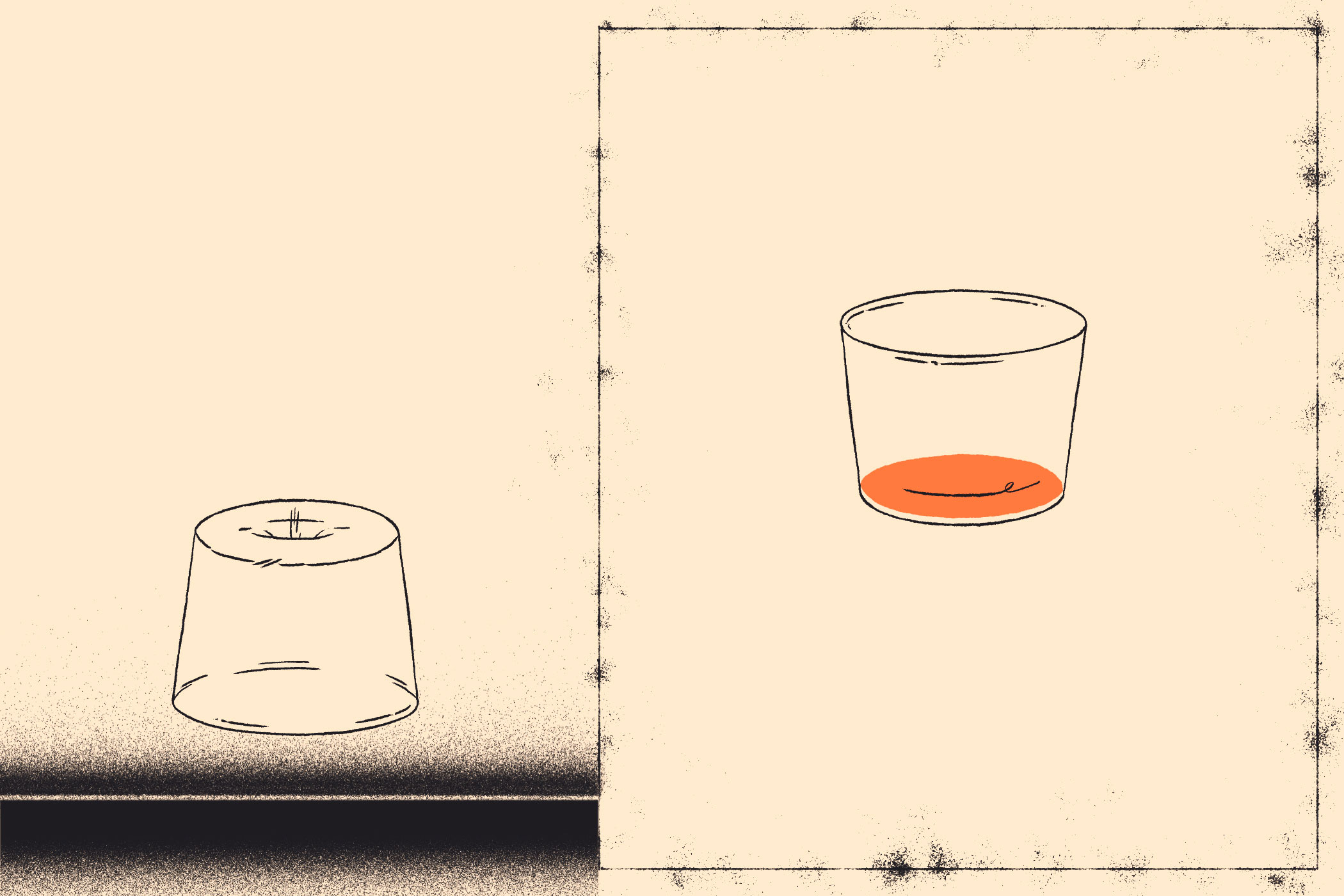
The early morning plus Eddie’s ill humor left Annette unable to lift her purse at shift’s end. Cooking was out of the question; so was skipping dinner. She opted for Eddie’s chicken and noodles. Eddie loaded a plate with a double portion. She glanced at the blonde mass.
“Put the rest in a box for Perry.”
She glanced up.
“Police scanner,” Eddie told her.
Annette twisted the noodles with her fork. They felt healthy going into her, cleaner than microwaved leftovers or packaged meals. A high school beauty with long dancer’s legs, a flat stomach, and tits that drew men’s attention but remained out of the way otherwise, she was at the top of the heap those days. Her brown hair hung to her shoulders and fell around her oval face. Her blue eyes were bright, weighing others. If she’d attended college, she might have acquired a degree and run a business or become a teacher or nurse. But she didn’t care for schoolwork or anything else that didn’t pay. Her teachers claimed she could not see the long view, but that was not so; she just didn’t like it, so she ignored the horizon for the ground beneath her.
She had walked the twelve-step program three times; the last coincided with the end of her episodic marriage and finally stuck. Thirty-six was her lucky number, she determined. Perry sponsored her all three times. They volleyed the questions that troubled her and a lack of answers that returned her to drink. Finally, the repetition wore out the questions. Boredom turned her cure.
She had been sober twenty-one months and twelve days. Occasionally, she suffered nightmares and woke sweating and angry because her dreaming self had backslid. Paydays she spread twenty dollars of chips on 12, 21 and 17—the date her sobriety began—at the roulette wheel at the Indian casino. She never won, which she considered good fortune. A sudden rush of income was likely to shove her off the wagon. This realization made her feel like a minor god—one without much of a domain, and few powers, but who possessed at least the gift of maintaining distance. Men now found her cold, and other women too much like men. Only Perry recognized her pride as full character. Well, Perry and Annette herself. She liked putting people off. It kept the riffraff away.
×
Mann and Ramona made a habit of aligning his prep period with her lunch break at the bank, Tuesday and Thursdays. They visited the Sky View Motel first, a fact verified by its proprietor, Jasper Heister, at Clara’s Kitchen, where several of the merchants took breakfast and played cribbage for the bill.
“He doesn’t even use a phony name,” Jasper said.
Eddie cut a three of hearts, a lifeless, mediocre card that provided no future for either of their hands. Eddie played a nine. Jasper added another nine for two points. Eddie dropped a third nine on the table for six. Jasper played a fourth card, then Eddie, another that earned a turn and another point.
“I’ll buy you a carton of Virginia Slims if you promise to smoke them,” Jasper told him.
“Aren’t those ladies’ cigarettes?” Eddie asked
“Maybe you’ll get cancer in your lady parts.” He shuffled and dealt. “You’d think they would change up their days at least.”
“He’s a coach,” Eddie said. “They plan down to the minute. Offense, defense, special teams.”
×
The next evening Annette took in a late movie and a talk show, then finally dropped off on her sofa wrapped in an afghan. She awoke to the rattle of rain and wind banging on the windows.
She tugged on her windbreaker and drove to the park through the squall. She expected Perry to be soaked, but she found him snug inside an army surplus tent. The dog, lit by her flashlight, gazed through the flap at her.
“Come out of the rain,” Perry said.
He had asked Annette to marry him several times. Tall and not bad-looking, and with most of his hair, Perry had steady work with the post office and benefits, too. Yet she had never taken his proposals any more seriously than he appeared to. She took them as inquiries rather than earnest offers of partnership.
She crawled through the opening. “You’ve got benefactors,” she said.
“Those Russian fisherman brought it.”
“Nice fellows, for communists.” Annette said.
“They aren’t communists, they’re just Russians. They love literature. It’s in their damned blood.”
Perry inquired about work and she reported Eddie was in a mood.
“Folks are ready for a performance,” she told him.
Most Fridays, Perry read for half an hour on a makeshift stage Eddie otherwise employed on New Year’s Eve for a band and for a wet T-shirt contest on the Fourth of July. This left fifty weekends a year for the coulee’s poet laureate. No one had appointed him, and Annette was pretty certain neither the city nor the county paid him. And poetry being poetry, no one in town knew if their bard was any good, although they did admire his backbone. Speaking to a crowd without a boss or court requiring it, well, that man was worth regard. Besides, no other town in the county could boast a poet.
“They’ll have to bide their time,” Perry told her. “The well is dry.”
×
Mann and Ramona entered the next Thursday as always. Desdemona, a stray Bassett cross the regulars had adopted, waddled past them to her blanket nest.
“That poet’s sleeping in the park, still,” Mann said.
Eddie delivered them their pitcher.
“You’ll want to consider your next words with some care,” he said. “Annette is fond of the man.”
Mann bristled. Ramona reached across the table and tapped his wrist. She turned to Eddie. “It’s nothing personal. He has no appreciation for the arts.”
Eddie retained a decent memory and was in the habit of filling customers’ glasses as they entered the door as a welcome. However, he delivered nothing to Mann and Ramona until they ordered. They tested him once and went without food, beer, or even water for forty-five minutes.
A week later, Eddie altered his menu, discarding the club sandwich and hamburger Mann and Ramona preferred. They opted for patty melts and BLTs. Later, he would construct two menus for them, with the prices doubled.
×
These past twenty years, Eddie had often felt close to tranquility. Behind the bar, he witnessed people endure contractions and labor akin to mothers in birth, but instead of life, their throes delivered awareness: a job’s emptiness, the inability to doctor their children’s wounds or ease a parent’s exit, the bitter limits of love. Suffering was, indeed, the human condition. But cruelty was not. It was brutality without shame. It angered him, and then he was angry at himself for being angry.
When such thoughts climbed upon him, he relied upon the solitude he otherwise resented as loneliness. Among the many, Eddie thought as they did. The community banished himself from himself.
In that time, Eddie had been smitten with several female customers, but the bar and his own reticence provided enough distance to repress the notion, until he’d become the town’s kindly, emasculated uncle.
In high school, he had courted a girl named Kendall. Winter, she agreed to accompany him to the Sweetheart Dance. Eddie borrowed a suit and brought her flowers. The fast dances, she rocked and turned and hunted his eyes, and when he met hers, she smiled. Slow dances, her breathing dampened his shirt and she permitted herself to relax into him. He thought she would fall if he let her.
She set her hand on his thigh as he delivered her home. He kissed her gently at the door and she invited him inside; her parents were away. She brought out sodas. They kissed on the couch. She reclined on the cushions and made room for him to do the same. After a time, he toyed with the buttons on her shirt. She tapped his chest, and he thought she was encouraging him. Or he hoped so. And hoping, he kept on. He tugged her bra until he could see her dark nipples. He glanced up to her face, for permission or ardor or because he wanted to see all of her. Her eyes were closed and her head swayed like it had when they were dancing, and he undid her belt and pushed his hands into her pants. His fingers struggled to separate her underwear from her skin and hairs. With his other hand, he undid his own pants and tugged his penis loose. It wagged like a dog’s tail. He looked into her face once more for direction. She sobbed. It was nothing akin to desire, just tears and deep, frightened breaths. Her eyes were focused somewhere past this universe into another, where this wasn’t happening. He forced his erection into his pants and draped an afghan over her.
Later, if he saw her in the school halls, he reversed course, and risked tardies and detention to avoid her. He learned her schedule and arranged his own to avoid her. A year later, she began to date another boy. Five years, the paper announced she’d married. A few years following, he heard about her first child. Eddie could not resuscitate his lust; his guilt left no room for it. He remained the good-humored celibate, fulfilling a cliché he recognized was constructed for him.
×
Outside the tavern, Annette encountered Ramona. They were not friends, but they were both single women.
“I’m not a whore,” Ramona told her.
“No one said you were.”
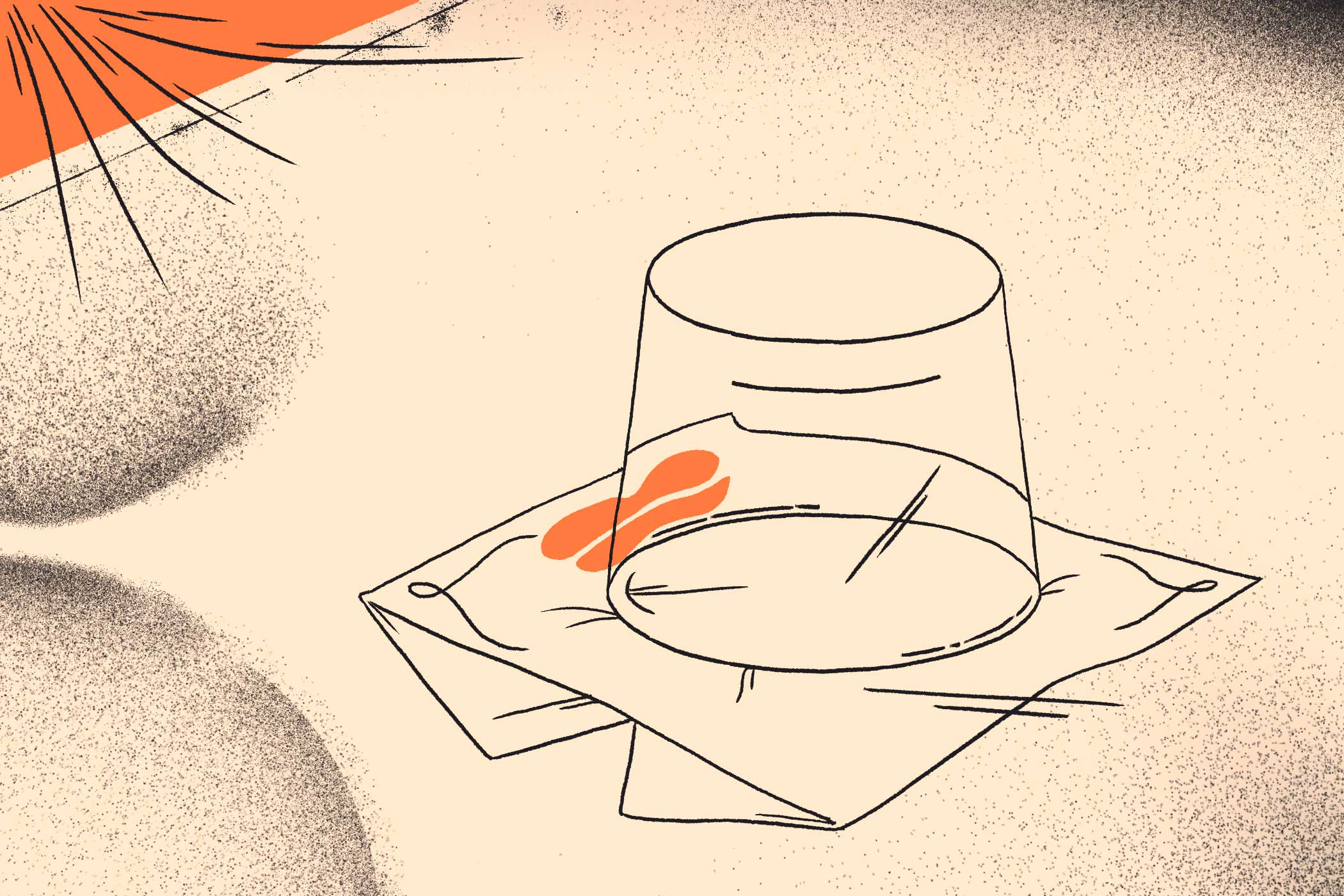
“Then how come I feel like one?”
Annette shrugged. “You ever consider another place for lunch?”
Ramona shook her head. “Tim’s set in his ways.”
“So is Eddie.”
×
After closing, Annette walked toward her twelve-year-old Dodge pickup. One other car remained on the street, another Dodge, a 1970 Satellite, a Mopar 340 powering it. In the driver’s seat was Yeller, the most handsome boy in school twenty years before. Annette had married him at nineteen. They had split long ago, but reconciling took time. Part of her expected, when they put enough years and tawdry behavior behind them, the worm would turn once more.
In the passenger seat was a girl not long out of high school. Annette shook her head, amused. She was surprised she felt no jealousy. Yeller glanced up as she passed; their eyes met. She knew he recognized her, and likely, for a moment, he’d have liked to swap the twenty-year-old for her own weary beauty. She laughed, but then she saw his sadness, which left her feeling only pity. Like that, she was past him. She walked on. She didn’t feel hurt or lonely or victorious or vindicated. She felt only an absence, as when a tongue occasionally encounters a toothless socket.
×
When Perry stayed on in the park for a second week, the city hit him with the sprinkler system. The tent proved ample protection. They removed the park’s outhouse, but a friendly contractor dropped another in its place and bound it to a tree with locks and a chain thick enough that the county hands feared retribution if they pressed matters.
Each evening, Annette delivered him whatever Eddie had left over from his lunch special.
“Why do I see so much?” Perry asked her.
Annette shrugged. “You’re a drunk.”
“Not practicing.”
“Doesn’t matter,” she said. “A drunk drinks to close his eyes. That’s what you told me. Sober means keeping them open.”
“Don’t remember that as part of the twelve steps.”
“Maybe it’s thirteen,” Annette told him.
Perry nodded and held a bread scrap up for the dog, who took it from him gently.
“You ready to marry me?”
Annette laughed. “You’d have to come up with an awful good poem.”
“Bring me my guitar, then. I might surprise you with a song, even.”
×
“You think they are the only hanky-panky happening here?” Annette asked Eddie.
“Do I own this place?” Eddie replied.
“Yes.”
“Then I guess I’ll decide how it runs.”
“You’re making yourself miserable,” Annette said.
“That’s my right,” Eddie told her. “You’re good help. I can find you something elsewhere.”
“I don’t deserve that,” Annette said.
“That’s why I offered,” Eddie replied. “You don’t deserve any of this.”
They watched the couple, quiet awhile. Eddie had decided he would remove their favorite songs on the juke.
“Sometimes I think if a man really cares for a woman he’d leave her be,” he said.
×
Perry strummed the guitar, then tuned the thing top to bottom and strummed again awkwardly, then tuned once more until he was satisfied. He started into a rhythm.
“Do you even know how to play that?” Annette asked.
“Partway,” Perry said. He strummed some more.
“‘Strawberry Roan?’” Annette asked.
“Everything three-quarter-time sounds like ‘Strawberry Roan,’” Perry said. He alternated his picking pattern, but the tune differed little. His singing voice wavered, high and nasal:
*Here is just rock and hard ground and spindly trees
Town filled with trailer houses and dogs with fleas
Buildings you got to blow dry the pipes in a freeze
Nobody lasts long enough for Alzheimer’s disease
Whiskey and pharmaceuticals keep the citizens at ease
And you build fires under cars if you forgot antifreeze
The coulee is barren, hard winds whip about
Dust fills my lungs and my joints ache with gout
And my organs grind, gears chipped to rust
And I sit here fretting the world is unjust
The highway heads both ways and it isn’t closed
Annette won’t drag up which is why I’m here, I suppose*
Perry halted. The last chord echoed and disappeared. “There’s more but I haven’t thought it out.”
Annette nodded.
“It’s not perfect.”
“It’s not,” she agreed.
Perry appeared disappointed.
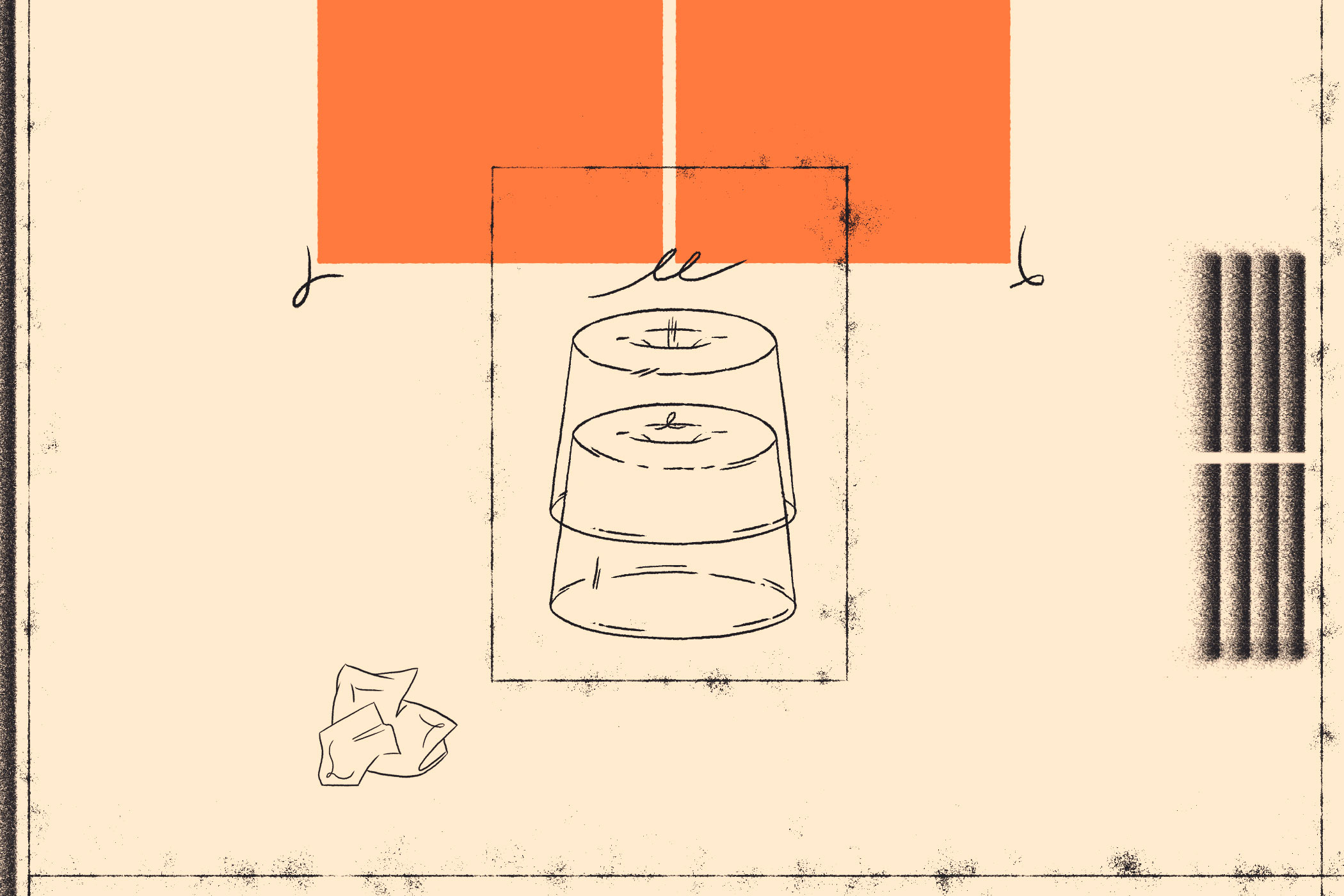
“Did you expect me to argue?”
“I’m not sure,” Perry said.
The sun had set and a chilly wind reared. Perry hunted in his tent and emerged with a jacket, which he wrapped over Annette’s shoulders.
“Yes,” Annette said.
“‘Yes,’ what?”
“I’ll marry you.”
Perry shook his head. “Marriage shouldn’t be.”
Annette collected his plates. “Maybe we could just fuck then.”
“And I could make you an omelet in the morning?”
“Sure,” Annette said. “Not here, though. Not in a goddamned tent.”
×
The slow leak in the woman’s bathroom sink had worsened until Gracey Stiles leaned against it and wound up on her ass, and Eddie recognized he could put off the repairs no longer.
In the hardware store, he encountered Mann. It was spring and the man wore shorts and a T-shirt advertising the high school weight program. His shoulders looked like they could make a horizon. Coaches sometimes slacked in the classroom, but Mann’s reputation put him knowledgeable, fair, and even empathetic. A boy with several learning disabilities turned out each year. Though he would never matter between the lines, the coach found him playing time in games already decided. Senior year, the team voted him Most Inspirational. Now he stocked shelves and bagged groceries and wore his leather letterman’s jacket whenever the temperature dropped under fifty degrees.
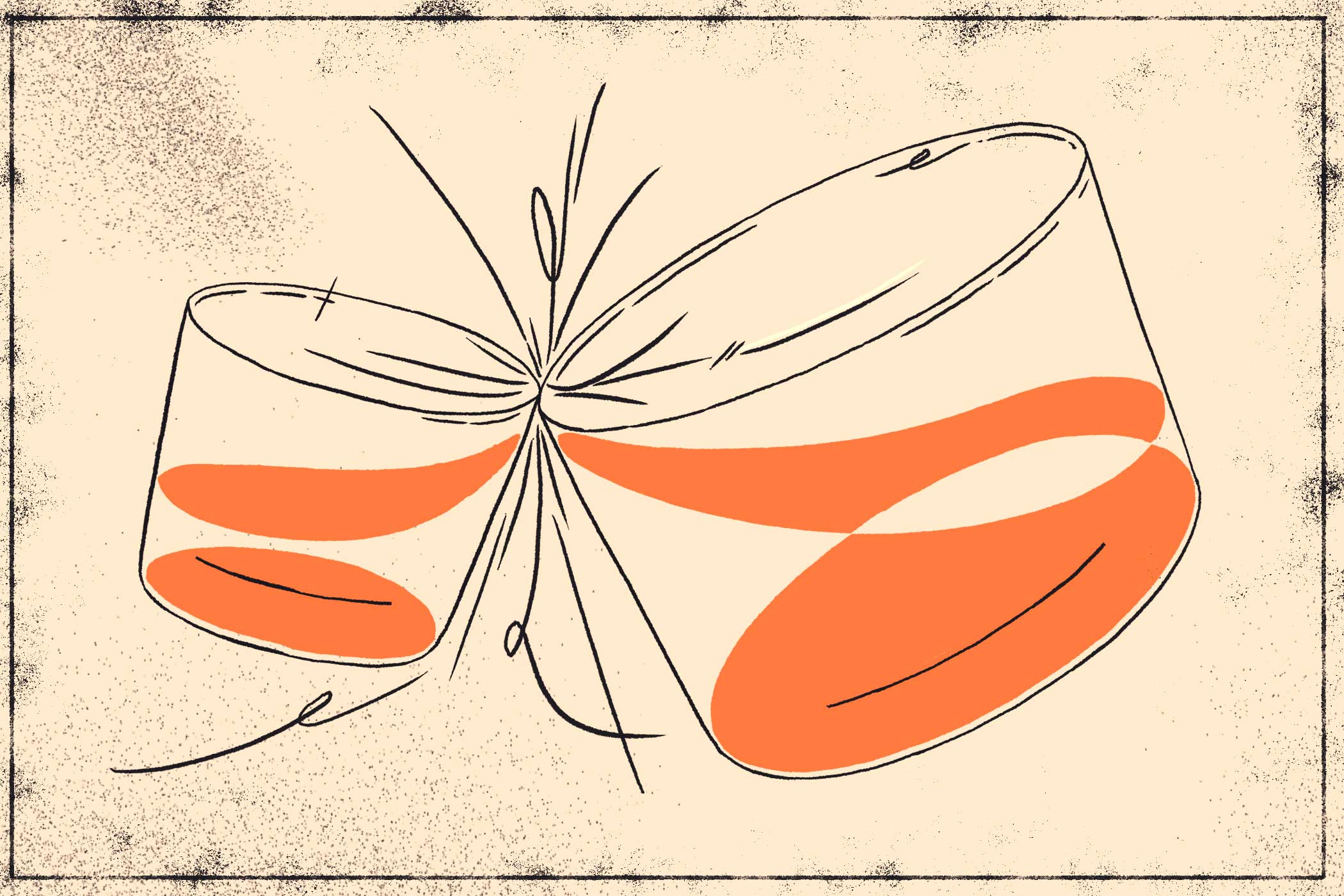
“Spring maintenance?” Mann asked.
Eddie nodded. “Your wife. She’s a lovely woman.”
Mann picked up a poly pipe joint and turned it in his hands. “Your business, you see people all the time struggling with their personal lives. Are you as hard on them?”
“No,” Eddie told him.
×
Eddie closed the place as he did every night. The town was asleep. Street lamps lined the road in parallel down the hill and up the other side, intersected with the highway through the coulee at the bottom. He often walked to the bar—it was only a mile—but for some reason, on this day he had run late. His Pontiac was in for an oil change, so he rode an ancient Huffy bicycle, a last remnant of his childhood. As a kid he’d threaded playing cards and crepe paper streamers through the spokes the annual Colorama parade. Once he and his grandfather carefully duct-taped a plastic bust to the handlebars. Eddie won the trophy that year, a granite cylinder topped with a glued-on silver dollar. His grandfather had kept it on his fireplace mantle. It was likely in some box now. Eddie longed for it in a manner so straightforward it nearly drew tears.
He coasted the bicycle down the hill without the brakes, sped past buildings and cars, took his chances at stop signs—not a bad bet this time of morning. His momentum carried him past City Hall and up the grade, and when his momentum lessened, he pedaled in time to reach the top of the opposite hill and the street where he lived with almost no effort. He deposited the bicycle in a heap on the lawn like he had as a kid.
Inside, he turned on the lights and entered the living room; sometimes it seemed another person inhabited him: this other man’s calendar hung on the walls, his coffee maker, blender, and crockpot were arranged across the linoleum counter, his cigarettes lay against his ashtray.
×
Perry was older than Annette by ten years, but she was surprised by his energy and care. He visited her body like he would never see another and was determined not to forget. When she awoke the next morning, the house was full of cooking smells, fried peppers and onions, German sausage, and some ham she kept in the crisper for sandwiches. The pan sizzled and she rose and put herself at the table, where Perry, wearing her flowered robe, delivered her a plate garnished with a slice of cantaloupe. She let her face hover over the meal; it warmed her and smelled almost too good to ruin by eating.
×
The Mann house had been constructed on a bluff overlooking the reservoir. It was a generous home with a well-kept lawn, a stylish wooden swing set and a sandbox in the side yard. Bracketing the house were flower beds—petunias, well-tended. Irises and tulips, which required less nursing, lined the edges of the yard.
In front, Kendall Mann fussed with a sprinkler. At the approach of Eddie’s Ford Expedition, she set down her shovel down and peeled her work gloves off, and waited at the foot of the concrete walk.
“Do you know me?” Eddie asked her.
“Yes,” she said. “You own the tavern.”
Eddie nodded.
“And high school,” she said. “We went to a dance.”
“I didn’t know if you recalled.”
“I do,” she said.
Eddie stood for a long while, silent. He stared into the blue sky. A cloud parted on the reservation edge of the coulee, two feathers. He heard the children behind the house holler back and forth. They sounded happy.
“This is a nice house,” Eddie told her.
“Thank you,” she said. “We like it.”
“We?” Eddie asked.
“Me, my husband, and the wild kids you hear.”
Her face was a veneer of her high school self, plastic and shrunk by the gravity of years. He gazed at her longer than was polite. Kendall dropped her eyes and watched the ground. She peered up. His eyes remained upon her. She met them again. Neither spoke. Tears fell down Eddie’s cheeks, disappearing in his whiskers.
“I’m sorry,” Eddie said. He wheezed, like he struggled to breathe.
“I know,” she said.
“It wasn’t right. I wasn’t right.”
“You weren’t,” she said.
“It doesn’t make any difference, does it?”
She laughed. “Is it true that confession’s good for the soul?” she asked.
Eddie shrugged. “It’s only been a minute.”
“It doesn’t do a thing for me,” she said. “I’d rather you hadn’t come at all.”
“All right,” Eddie replied. “I’ll quit pestering you.”
He headed for his rig.
“Hey,” she hollered. “Why did you come?”
Eddie stopped. “Your husband,” he said finally.
“What about him?”
Eddie sighed. “He’s a good man.”
“You come to tell me that?”
Eddie nodded.
He opened the door and started the truck. He was damp with sweat, so he switched on the air conditioner and let it cool him. A song he couldn’t recognize was on the radio. A stone struck his windshield.
“What about my husband?” Kendall yelled.
“Nothing,” Eddie shouted.
“I don’t believe you,” she cried. She coiled and launched another rock at the windshield.
